
About
Microtopia is the future of affordable and unique housing designed exclusively for the Millennial generation. The vision is to provide this amazing generation with an innovative and sustainable community to support home ownership, collaboration, entrepreneurship, education and global connection.
Nowhere is it more evident than in the latest research, which we just stated, that home ownership will be out of reach for one of most prolific generations to come along since the Baby Boomers.
Why Microtopia Village?
Through countless hours of research, meetings, and discussions with local economists and professionals, we have come to the following conclusions:
The Millennial of today will not be buying a $ 300,000 home (which is the average price for a home in Colorado) for two reasons: one, high debt scenarios from college and two, the major sector of this demographic are not of the mindset of buying large homes.
To currently purchase an affordable home, most of the existing inventory in the price ranges they could afford are not attractive, too large, and appear to be only available in undesirable or older, dated neighborhoods. Being energy efficient is a core value of a Millennial.
Collaboration is valued highly among Millennials; the design of the community heavily incorporates this mindset.
Sustainability in regard to energy, a smaller carbon footprint, and supporting a unique ecosystem is also a value shared by this group.
There are no current developments that are specifically designed to fit their wants and their needs.
Given the high cost of leasing of all types of housing in Denver and the surrounding areas, Millennials are seeking out affordable alternatives.
Where can they go to find a community that satisfies all of these prerequisites? Only Microtopia Village.
Overview
Microtopia Village sits on 100 acres and will be one of the most amazing and unique communities ever to be designed in Colorado. Contained are 400 beautifully designed micro-homes from 500 square feet to 1,200 square feet all surrounding a self-sustaining eco-system of energy, food, collaboration, education, and gardens. These homes all surround community green houses and a 40,000 square foot hub. This unique building contains the latest in fiber technology, a community and event center, access to universities across the state and the globe, Millennial-centered restaurants and a state of the art entrepreneurship incubator and collaboration center.
In addition, the entire development will have parks, bike paths, walking paths and direct access to public transportation corridors.
Micro-Homes
The ideal, affordable and beautiful unique micro-homes are the keystone of this community. Built from 60% recycled products and designed to manage the complexity of managing energy, comfort, utility and beautiful design were the underpinnings of the development.
Currently there are 4 different designs:
The Nectar – 500 sq. ft.
The Aspen – 750 sq. ft.
The Honeysuckle –1,000 sq. ft.
The Aspen Cluster – 1,200 sq. ft.
Starting prices are from $ 90,000 to $ 180,000.
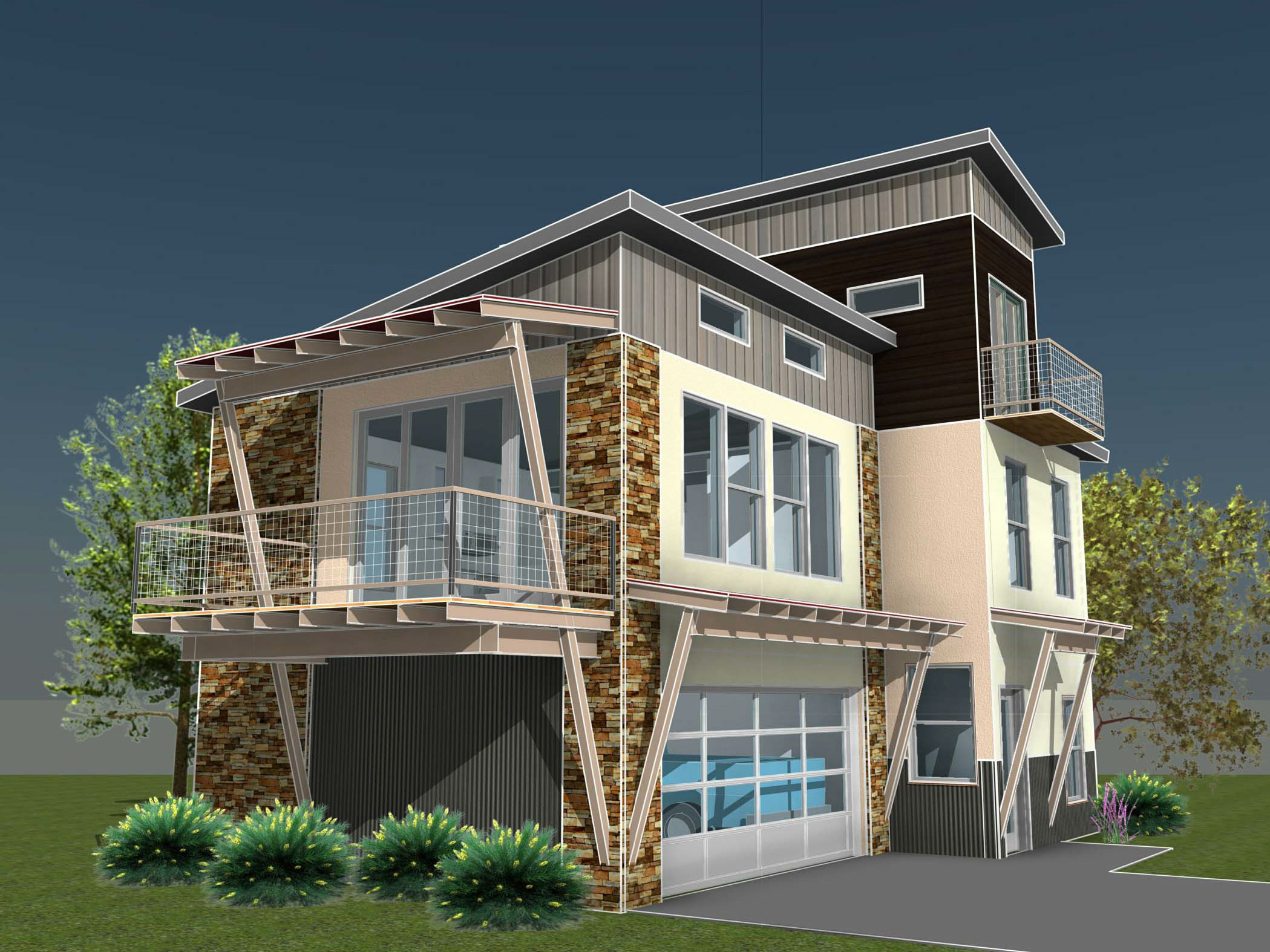
Energy
Microtopia Village runs off of a hybrid-grid system: the entire Village is connected to the municipal grid but will have an entire internal self-sustainable grid of their own.
Solar arrays built into every home and a micro-solar farm provides solar power
Geo-thermal options support energy usage for green houses and lighting
Wind energy systems for each home as well as the main “Hub”
Micro hydro systems for flowing water re-capture.
Solar road hubs in each cul-de-sac.
The Energy Initiative at Colorado State University is leading the overall conceptual facets of each type of energy source and how they will integrate with each other to afford the Village maximum efficiencies.
The energy system will be LEED certified and will be complementary to the local municipal grid for water, sewage, gas and electricity.

Community Green Houses
In many parts of the country, neighborhood and community gardening is a popular way to both eat organic, healthy food and to connect with one another and become educated on nature and gardening.
Microtopia will house 10 community-sized green houses to support the entire Village and offer for sale organic food to surrounding communities. This provides both a collaborative and legacy of life offered as a living classroom and a central hub of activity. It’s a refuge for those who wish to grow locally, as the opportunity for organic food demand increases.
The Hub of the Community: The Andromeda
Breathing life, innovation and collaboration to the world
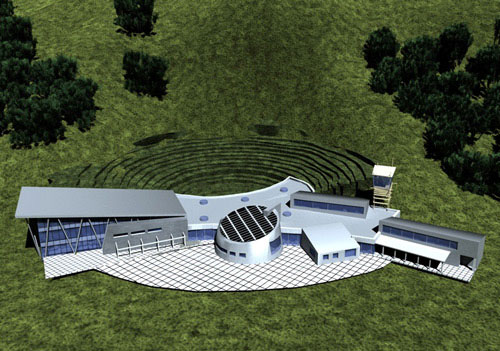
The 40,000 square foot Hub is the mainstay and the key to Microtopia Village. It is a non-profit center that is designed to support the entire Village and provide a plethora of new events and activities, while housing permanent entities. Its purpose is to be a living community laboratory supported to expand community, markets and future vision of the Millennial Generation.
- Entrepreneurship
- Higher Education (e.g. the University of Denver)
- US & Global Collaboration
- Local Community Events
- Meeting Rooms
- Community rooms for functions, conferences, networking and social activities.
- Fiber level Wi-Fi, Global connections to local Universities and around the world.
- Large 3-D multi-faceted LCD screens for collaborative and educational, business meetings
- Natural foods restaurant, bar, hangout and store
- Health club with full facilities including; massage, nutrition, lap pool or endless pools
- Hang out area
- Entrepreneur center complete with all the amenities of an innovation incubator.
- Domestic, laundry, fruit and juicing bar
- Retail such as Jamba Juice, Chipotle’s and other food conscious restaurants
- Micro-Brew
- Observatory for space, science and other cool endeavors
- Spiritual meditation and prayer center
- Holistic Healing and Chiropractic center
- Bike repair/sports and hiking
- And many more…
OUR TEAM
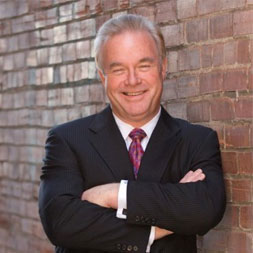
Robert Smith
Founder and CEO
Michaela Smith
Co-Founder and Director of Millennial Projects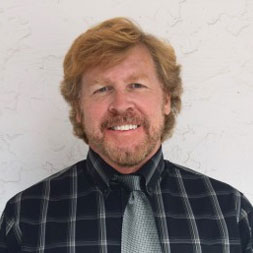
John Clarke
Chief Architect and Director of Land Development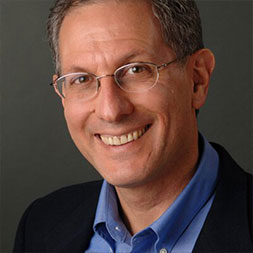
David Fein
Idea Generator & Business Development
Morgan Smith
Director of Millennial OutreachTHE MILLENNIAL MARKET
The Millennial generation is the most prolific and largest demographic in the U.S. today. Denver is the prime target of this generation and Millennials from both coasts are flocking here because this city and the surrounding areas have designed and invested in the infrastructure needed to attract this amazing unique market sector of young people! The Denver metro area is considered the Millennial Mecca for the state of Colorado and one can only imagine the opportunities that lie ahead for businesses and industry who appreciate and really understand how to connect and access to these amazing young people.
According to a recent report from the Roosevelt Institute Campus Network entitled “Blueprint for a Millennial America,” sponsored by the John D. and Catherine T. MacArthur Foundation, Millennials are the largest generation in American history, and will constitute 33 percent of the eligible electorate by 2016.
As they take their first steps into the “real world” — graduating college, forming their political beliefs, launching their careers, even beginning families — the United States is mired in a deep economic crisis, forcing all of them to reflect on the future that they will inherit.
Amid this culture of political gridlock, young people across the country have joined together to design a Blueprint for the Millennial America — a vision for the country that reflects their shared priorities and their unique experiences. And they are taking action today to start achieving it.
They are defining what it means for our nation to flourish to creating the country they are going to inherit. Past generations have made incredible progress — women’s rights, a superpower economy, the Civil Rights movement, and extraordinary advances in technology.
But the Baby Boomers have also left Millennials, (young people born between 1980 and 2000) with looming federal debt, historically high wealth disparity, alarming environmental concerns, unstable foreign relations, years of endless war, suburban sprawl, and underperforming healthcare and education systems.
In many major measures — their commitment to human rights, educational achievement, average income, and life expectancy among others — America is falling behind.
The challenges facing their generation are arguably greater than those faced by any other in America’s history.
In March 2010, they started a movement — Think 2040 — to express, with their own voices, their American dream.
Thousands of Millennials nationwide have already contributed to this generational vision.
They felt the recession. It hurt. They remember the attacks on September 11th. They feel the effects of skyrocketing college tuition, with average student debt having reached $24,000 for the Class of 2009.
These amazing young people are diverse and socially empathetic. They are demanding sweeping change, and acting locally. They are changing the system from the inside, employing themselves, thinking long-term, and imagining a more equal, accessible, empowered, and community-minded America in the year 2040.
Here is the best part: they have solutions and Microtopia Village is being developed to assist them to achieve their dreams. It was dreamed up by Millennials and will be developed by Millennials and run by Millennials.
“And for more than two centuries, every time we’ve feared that our country has expended its capacity to reach new heights, we turn to each other for inspiration and realize that collectively our capabilities are immeasurable. It’s the promise of human ingenuity…” – Harvard Business Review 2015
This is the promise of the Millennial Generation.
The Problem of Home Ownership
There’s no place like home — except when you can’t afford one.
Millennials have been priced out of some of the biggest U.S. cities, with residential real estate prices rising even as wage growth remains elusive.
Bloomberg used data from the U.S. Census Bureau, Zillow Group Inc. and Bankrate.com to quantify how much more money Millennials would need to earn each year to afford a home in the largest U.S. cities. The good news is that out of 50 metropolitan areas, 37 are actually affordable for the typical 18-34 year-old.
The bad news is that the areas that often most appeal to young adults are also the ones where homeownership is the most out of reach.
This problem presents an interesting opportunity to build Micro Homes.
Consider the following article that describes a huge barrier to entry to ownership for Millennials but our opportunity to provide an alternative to buying Micro Homes as stand alone units.
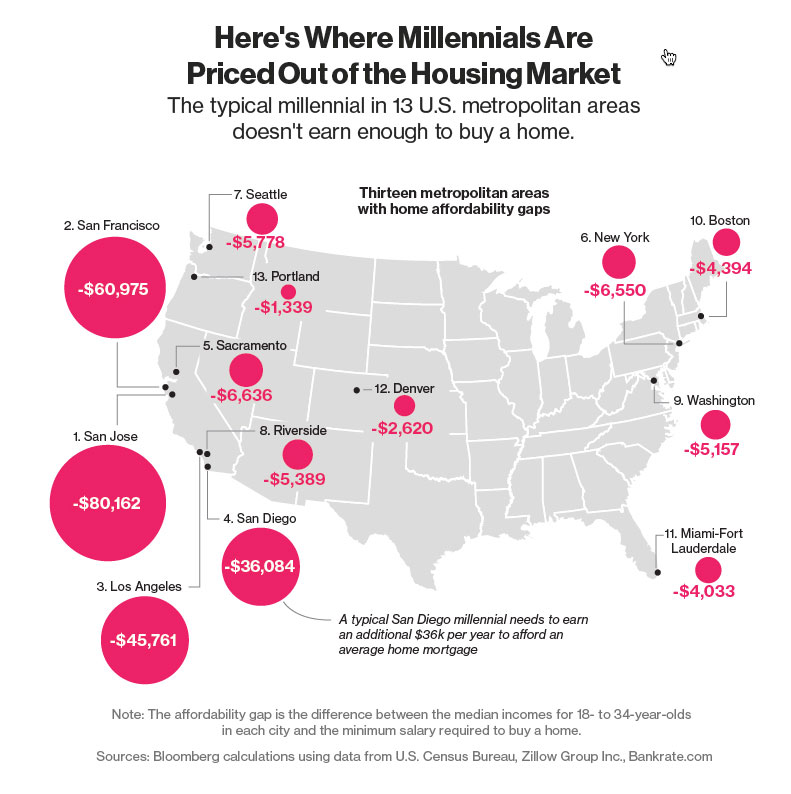
Millennials and the Rent/Buy Decision: Are Construction Defect Laws a Factor?
Excerpt by Kimberly A. O’Hagan on March 5, 2015
As we’ve written in the past, Millennials have played a significant role in the revival of Denver’s economy. As increasing rent payments threaten to exceed monthly mortgage payments, however, Denver’s popularity among Millennials may diminish. Although worsening affordability has not discouraged Millennials’ interest in living in Denver thus far, as Millennials age and begin to consider homeownership, some believe a supply of more affordable homeownership options may be necessary for their retention.
Condominiums, which often serve as a key transition into homeownership for first-time buyers, are being built at a much lower rate than in years
past. Although a few condominium projects in the Denver metro area are underway, which exceed an average of $ 400k, the price point may be beyond what Millennial buyers are able to afford and in any case, the number of units remains low.
Some cite the inability to qualify for financing and low demand as the reasons for the decreased number of condominium projects. Others, including Denver’s Mayor Hancock, credit the chill on condominium construction to Colorado’s construction defect laws, which they say have resulted in increased insurance costs that make condominium development economically infeasible.
A bill introduced in February 2015 in the Colorado legislature aimed to revise the current construction defect laws applicable to condominiums.
In attempting to reform its construction defect laws, Colorado joins a number of other states concerned about the overall reduction in the number of condominium projects in their respective states. Senator Jessie Ulibarri, a Millennial and co-sponsor of Senate Bill 15-177, hoped that reform would mean that members of his generation who have been driven into Denver’s expensive rental market will be able to buy a home.
The bill was killed in committee on April 28, 2015.
The Economic Forecast for Denver
In addition, the 2015 Economic Forecast – researched by Patty Silverstein, chief economist for the Metro Denver EDC – reviews the events of the past several years as well as highlighting emerging trends for this year. The forecast includes national-level information and includes estimates for statewide indicators as well.
“Metro Denver will continue to benefit from solid economic performance in 2015. Even as we experience increasing employment and confident consumers, we need to recognize that our aging and retiring baby boomers and well-educated and ready-for- the-workforce Millennials are changing the face of our community and influencing housing patterns and how we do business,” said Silverstein.
Compared with the national average, Metro Denver’s employment growth in 2014 was more than 1.3 percentage points higher at 3.2 percent, which included gains in each supersector except information. Silverstein forecasts job growth in 2015 to be 3 percent, which represents the addition of about 45,000 jobs.
According to Silverstein, four supersectors of the regional economy should post strong employment growth in 2015: natural resources & construction (5 percent), education and healthcare services (4.1 percent), professional and business services (4 percent), and leisure and hospitality (3.6 percent).
“As the area continues to attract new companies, draw in talented workers, and promote entrepreneurship, Metro Denver will have better-than-average job growth and a lower unemployment rate than the United States and Colorado,” said Silverstein.
“With a forecasted average unemployment rate of 4 percent in 2015, our companies can expect to see a very tight labor market,” said Silverstein.
Silverstein also highlighted the demographic shifts that are changing the face of Metro Denver’s workforce. She noted that Millennials (born between 1981 and 1997) now compose the largest population group in Metro Denver.
“While generation X and baby boomers dominate the workforce today, the Millennials are making their mark on the workplace and will represent the largest component of the labor force within 10 years,” she explained.
Future Opportunities
Changing demographics not only have implications for future labor force growth patterns and consumer spending, but also residential real estate purchases.
The Metro Denver EDC’s CEO Tom Clark says that with limited supply in the residential real estate market and above-average population growth, home prices and appreciation are rising and construction activity is picking up.
“While increased residential construction activity is very positive for our economy, we do see challenges related to Millennials and baby boomers seeking affordable, owner- occupied housing due to almost flat construction of condos and a historic rise in apartment construction,” said Clark.
The forecast for Metro Denver includes the seven counties of Adams, Arapahoe, Boulder, Broomfield, Denver, Douglas, and Jefferson. Economic indicators analyzed include: population trends, employment by industry, unemployment, retail sales growth, commercial real estate, and residential activity.
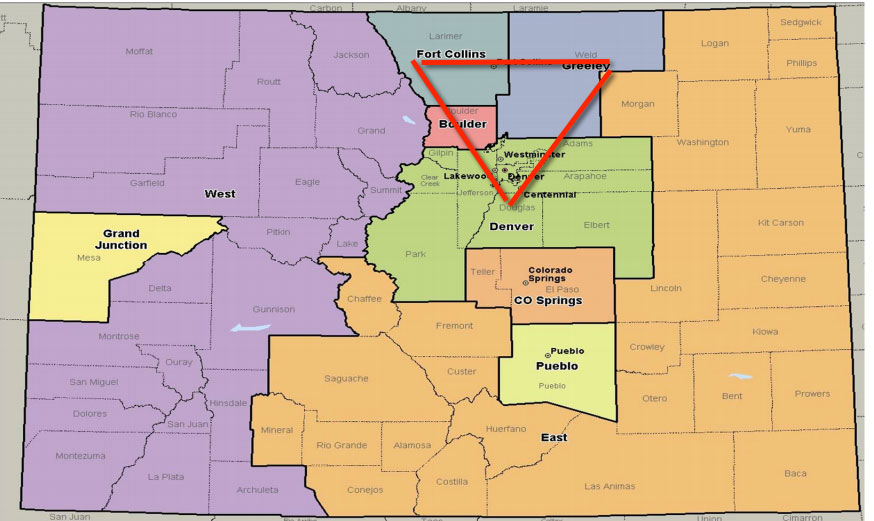
“The Triangle”
The coordinates between Denver Metro MSA (Metro Statistical Area), Boulder MSA, Fort Collins MSA and Greeley MSA, are the Millennial Mecca for the state of Colorado. More Millennials live and work here per capita than any area in the west, and are moving here in droves from California, the Midwest and the East Coast.

